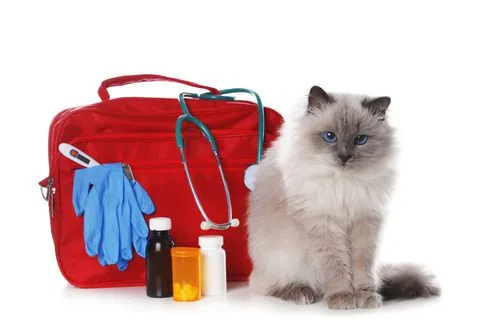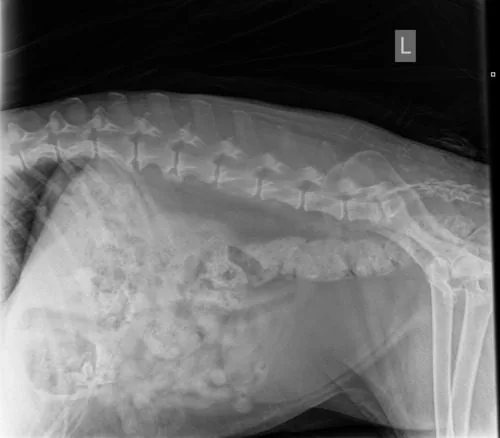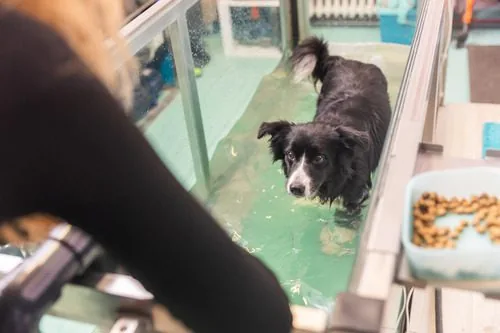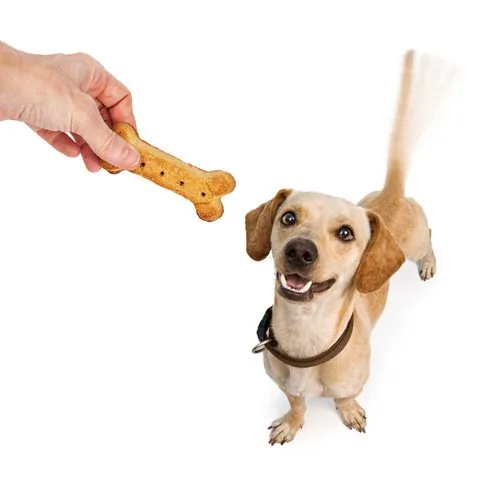Is Cat Constipation an Emergency?
Cats are often private about their habits, especially when it comes to using the litter box. But if your cat hasn’t passed stool in a day or two, you might begin to worry, especially if they’re acting off. Constipation in cats is fairly common, but when does it cross the line into something more serious? If you’ve ever found yourself wondering, “Is cat constipation an emergency?”, this blog will help you understand when it’s time to contact your veterinarian. Veterinary Healthcare Associates in Winter Haven, FL is here to guide you through the signs, possible causes, and urgency of cat constipation. If your cat is struggling, call us today at (863) 324-3340.
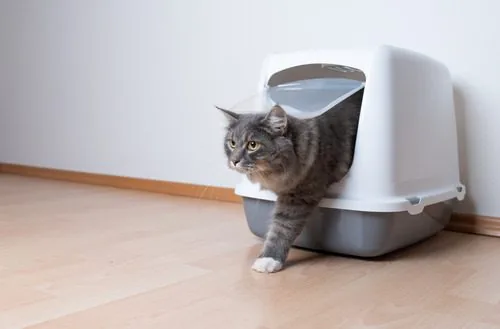
What Is Cat Constipation?
Cat constipation happens when your cat has difficulty passing stool, or their bowel movements become infrequent or incomplete. Most healthy cats will have a bowel movement once a day. When a cat becomes constipated, the stool remains in the colon, hardens, and becomes more difficult to pass.
Common Signs of Constipation
Some signs are easier to notice than others, especially if your cat uses a covered litter box. Here’s what to look for:
- No stool in the litter box for more than 48 hours
- Straining while trying to defecate
- Small, dry, or hard stools
- Crying or vocalizing in the litter box
- Lethargy or reduced activity
- Decreased appetite
- Hiding behavior or acting uncomfortable
If your cat shows any of these symptoms and you’re asking yourself, “Is cat constipation an emergency?”, keep reading to learn what situations may call for urgent care.
What Causes Constipation in Cats?
Understanding the possible reasons behind constipation can help you identify issues before they escalate.
Dehydration
Cats are prone to dehydration, especially if they eat mostly dry kibble and drink little water. Dehydration can slow down digestion and lead to hardened stools.
Hairballs
Long-haired cats or those that overgroom often ingest hair, which can form clumps in the digestive tract and interfere with normal bowel movements.
Lack of Exercise
Inactive cats may experience slower digestion, which increases the risk of constipation. This is more common in senior cats or those with mobility issues.
Obstructions
Foreign objects, tumors, or strictures can cause physical blockages in the colon. These situations are much more serious and may require emergency care.
Pain or Stress
Pain from arthritis, pelvic injury, or even stress from a recent move can cause a cat to avoid the litter box or strain during bowel movements.
Medical Conditions
Conditions like kidney disease, diabetes, or megacolon (an enlarged colon that no longer contracts properly) can contribute to chronic constipation. If your cat has an existing health issue and becomes constipated, it’s especially important to monitor them closely.
When Is Cat Constipation an Emergency?
So, is cat constipation an emergency in all cases? Not always, but it can become one. The key is knowing when the situation goes from minor to urgent.
Signs That Require Immediate Attention
If you notice any of the following, your cat may need emergency veterinary care:
- More than 48 hours without a bowel movement
- Persistent vomiting or retching
- Bloated or firm abdomen
- Severe lethargy or weakness
- Crying or growling when touched
- Sudden collapse or hiding for extended periods
These symptoms may indicate a serious blockage or another underlying condition that needs prompt evaluation. Don’t wait to see if it resolves on its own, call your veterinarian. At Veterinary Healthcare Associates, we offer advanced diagnostic tools to determine what’s causing the issue. If you’re located in the Winter Haven area, reach out to us at (863) 324-3340 today.
What Can Happen If Cat Constipation Goes Untreated?
Constipation can worsen quickly if not addressed, especially if it’s caused by an obstruction or medical condition.
Risk of Megacolon
If a cat is chronically constipated, their colon can stretch and weaken, leading to a condition called megacolon. This can make it even harder to pass stool and may eventually require surgery to treat.
Toxin Buildup
When waste isn’t expelled regularly, toxins can build up in your cat’s body, potentially leading to nausea, appetite loss, and organ strain.
Severe Discomfort and Pain
Straining repeatedly can lead to anal tears or hernias. The longer your cat stays constipated, the more pain they may experience. If you’re concerned and wondering, “Is cat constipation an emergency?”, consider how long it’s been since your cat used the litter box and whether they’re showing signs of distress.
What to Expect at Veterinary Healthcare Associates for Cat Constipation
If your cat is showing signs of constipation and you’ve contacted our team at Veterinary Healthcare Associates, here’s what a typical visit may involve.
Initial Assessment
Your vet will review your cat’s history, examine them physically, and may ask about:
- Frequency of bowel movements
- Diet and hydration
- Changes in behavior or appetite
- Use of any medications
Diagnostic Testing
Depending on the symptoms, your vet may recommend:
- X-rays to check for obstructions or colon enlargement
- Bloodwork to evaluate for dehydration or kidney issues
- Ultrasound to look for masses or structural abnormalities
Supportive Care and Treatment
Treatment will depend on the cause and severity of the constipation. Options may include fluid therapy, enemas, dietary changes, or further evaluation if an obstruction is suspected. If your cat is experiencing a medical emergency, Veterinary Healthcare Associates in Winter Haven, FL is fully equipped to provide 24/7 emergency care. Call us at (863) 324-3340 to speak with a member of our team.
How You Can Help Monitor Your Cat’s Health
Knowing what’s normal for your cat is the best way to detect early changes. Pay attention to how often they use the litter box and what their stool looks like.
Establishing Healthy Habits
- Provide clean, easily accessible litter boxes
- Feed a diet with adequate moisture (wet food or a water fountain may help)
- Brush regularly to reduce hairball risk
- Keep them active with play and enrichment
Constipation might not always seem urgent, but when it goes unchecked, it can lead to more serious health problems. If you’re asking yourself, “Is cat constipation an emergency?” and you’re seeing signs of distress or ongoing issues, your safest step is to call your veterinarian. If you’re in Winter Haven or the surrounding area, contact Veterinary Healthcare Associates at (863) 324-3340. We’re here to help you navigate your cat’s health concerns with care and expertise.
Recent Posts
When is Dog Diarrhea an Emergency?
When is Dog Diarrhea an Emergency? Dog owners know all too well that occasional digestive upset isn’t…
Feline Emergencies: Warning Signs Your Cat is Crying for Help
Feline Emergencies: Warning Signs Your Cat is Crying for Help Cats have a reputation for being independent,…
Spondylosis in Dogs: Symptoms, Treatment, & More
Spondylosis in Dogs: Symptoms, Treatment, & More If your dog is slowing down or showing signs of…
Dog Wobbler Syndrome: Symptoms, Diagnosis, & Treatment
Dog Wobbler Syndrome: Symptoms, Diagnosis, & Treatment Wobbly walking, a stiff neck, or an unsteady gait in…
Happy Tail Syndrome in Dogs: Causes & Treatment Options
Happy Tail Syndrome in Dogs: Causes & Treatment Options Dogs show joy with their whole bodies, especially…
About Veterinary Healthcare Associates
Veterinary Healthcare Associates in Winter Haven, FL, was established over 30 years ago as Maxwell Animal Clinic by Dr. John Maxwell. Maxwell Animal Clinic was a one-doctor general practice offering preventive care, dentistry, and standard surgical services to the community. As the years passed, Maxwell Animal Clinic evolved into a thriving 10-doctor general, specialty referral, and emergency veterinary practice.


